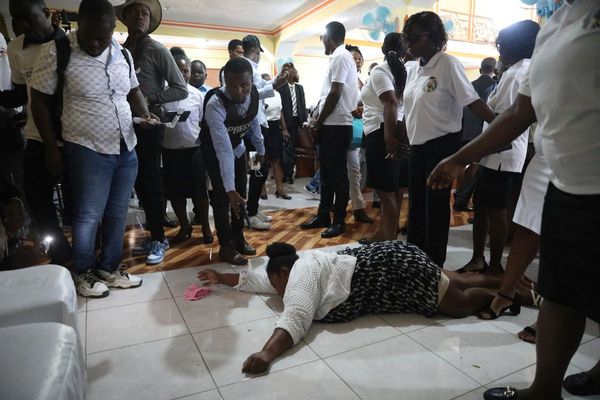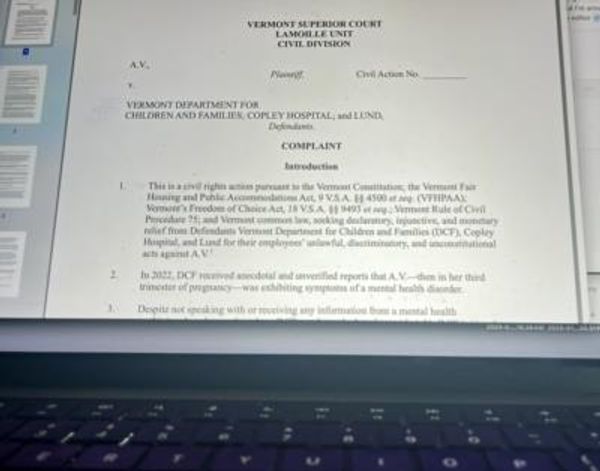
The Defence Department has bluntly opposed growing calls to strip or otherwise reduce the unilateral power of the prime minister to send the country to war or enter armed conflict without parliamentary approval or oversight.
The views of the department, justified by reference to what it called a “risk [of] significant adverse consequences” to national security, were relayed via a submission to the parliamentary inquiry examining reform of war powers.
In short, the department said any move to subject the decision to go to war to parliamentary approval or veto could jeopardise security intelligence and risk the strategic position of the country.
But Australians for War Powers Reform president Alison Broinowski said the department’s concerns, which echo that of Defence Minister Richard Marles, were overstated and misguided, and ran contrary to the approach of comparable democracies around the world.
“Every democracy, including Australia, must confront the question of how to decide to go to war and many do it in a much more democratic fashion than Australia,” she said, citing the recent evolution of convention in the United Kingdom and Canada.
“You have to wonder at the department’s opposition to democratic oversight,” the former high-profile diplomat added. “Giving our elected representatives a vote on something as fundamentally significant as war is these days far from radical or controversial.”
It’s a position supported by eminent legal experts, civil liberties organisations and distinguished veterans, including former defence force chief Chris Barrie, former army chief Peter Leahy and retired Major Cameron Leckie.
“Obviously, the Defence Department does not want to fetter its hands, but times have really changed,” said international law expert Ben Saul, who characterised the department’s submissions as an anachronistic “hangover of an era” in which power to declare war was purely a prerogative of the sovereign.
“Since 1945, the power to declare war has not been a pure discretion of the executive; we’re a party to the United Nations Charter, which bans war subject to international law exceptions, and that brings with it public expectations that Australia will act consistently with the international regime.
“International law and an international rules-based order are bedrock Australian values — our government should be expected to [legally] justify its decision to go to war openly and publicly before Parliament.”
Constitutional law expert George Williams broadly agreed with Saul’s views, saying the backdrop of international law inevitably raised issues that could not have been foreseen when the constitution was drafted.
“We’re talking about a power that made sense in the 1890s in a different world in which there was no United Nations, no [legal] issues around wars of aggression or war crimes, no human rights,” he said. “The world has changed; the problem is, we haven’t.”
War powers reform has been afoot in the UK and Canada since the illegal invasion of Iraq nearly 20 years ago, which Williams said had sheeted home the dangers and inappropriateness of having such powers reposed, by convention, in the prime minister or cabinet alone.
“We’re not at the front end of this debate,” he said. “So the readiness of the Defence Department and minister to close down the debate here really does surprise me.
“The UK’s experience is proof that any national security issues can be navigated in the design process.”
To this end, advocates of reform – including Saul and Williams – say any changes to the war powers would inevitably allow for extreme circumstances, such as invasion, in which prospective parliamentary debate on or authorisation of military force wasn’t feasible.
But in Saul’s view, there would be few situations in which any such exception could reasonably be enlivened.
“If you think about deployments like East Timor, Iraq or Afghanistan, none of those were so urgent that there wouldn’t have been time to call even an emergency session of Parliament to debate the issue,” he said.
“As the Iraq war shows, it is perfectly possible to disclose legal advice without prejudice to the government’s position, and in fact we’re already required to report to the UN Security Council if we use force, so it’s not a big ask to put that legal position on the record and allow Parliament to debate it.
“It can only improve the quality of decision-making in the end.”
Williams, too, was of the view parliamentary oversight over possible conflict would ultimately sharpen the accountability of government and lend public legitimacy to any decision arrived at.
“When a country goes to war, it’s really important the community understands and accepts the decision,” he said. “And that is more likely to happen if the decision involves the people’s representatives and is not made in secret.”
Of the 111 submissions received by the inquiry, only three entirely opposed subjecting the power to enter armed conflict to parliamentary oversight or control.
Should the decision to go to war rest only with the prime minister and his or her cabinet? Let us know by writing to letters@crikey.com.au. Please include your full name to be considered for publication. We reserve the right to edit for length and clarity.







